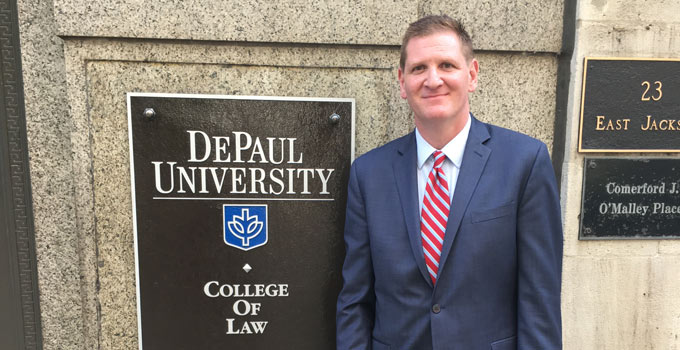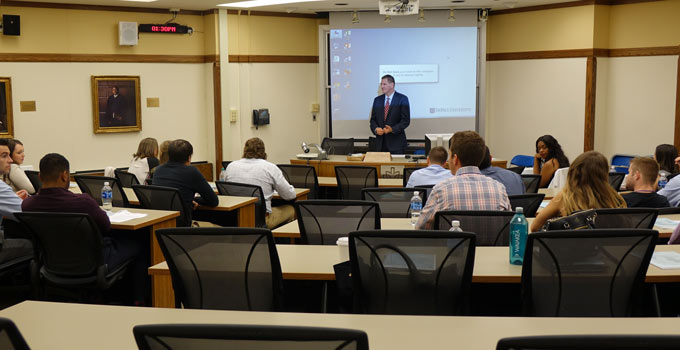One of the things I appreciate about my job is coaching future, aspiring attorneys as they begin their legal education. I’ve been doing this for many years, and once again I was asked to participate as a guest speaker during DePaul University’s welcome week for first-year law students. It was everything a practicing attorney could hope for in a group of law candidates—smart, insightful, ambitious.
For the non-attorneys out there, welcome week is perhaps one of the most memorable moments of law school. It typically begins with a brief introduction from the Dean of Students and ends with the most important of tasks: an oath of duty, recited just before breaking off into small group sessions in which a practicing attorney (me) leads a conversation about ethics and professionalism. Perhaps some do it differently but this has been my experience over the last few years, and it makes me appreciate the early beginnings of my own legal education.
That’s a brief way of saying that welcome week is an opportunity for young attorneys to get a taste of the next three years. Ethics, of course, is a big part of that. Part of my task was to introduce two hypothetical scenarios, each presented with several ethical dilemmas and gray areas that were not so easily dismissible. For example, one scenario dealt with an established attorney who encouraged a young legal associate to engage in unethical practices because, to paraphrase, “You’re young. You have your whole career ahead of you, so it doesn’t matter if you get caught now.” A second scenario dealt with a group of attorneys who liked to use hardball tactics to intimidate and frustrate the opposing counsel by sending documents at 11:59 pm on a Sunday. That led to a discussion about what might be considered technically legal but not necessarily professional.
The reasons for doing these exercises might seem self-explanatory, but they are beneficial on multiple levels. They are designed to give students a glimpse into their coursework, but also to stir debate about the nature of the profession, primarily how important it is to preserve your reputation, whether you’re a first-year attorney or one with decades of legal experience. The legal world is small; at some point, news gets around to other attorneys and judges. I went as far as to provide examples of similar situations that I’ve had to deal with in my legal career, including a hardened defense attorney who would not agree to an extension for one of my clients, who had a massive stroke just days earlier. The judge granted the request, and I doubt he’s forgotten how shallow and unprofessional it was for the defense to insist that my request be denied.
My goal for these types of mentorship opportunities is simple. I want to be helpful, and I want others to feel as though they learned something new. At the same time, I feel like I learn something new too.


Reader Interactions